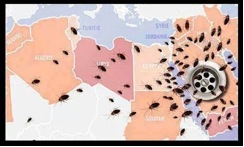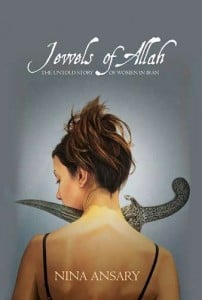A few months ago I was invited to like a Facebook page called Memes Feministas Islámicos. The page targets mostly Spanish speakers, and it claims to be countering Muslim patriarchies online. Their “About us” page reads:
“Nos sumamos a la tarea de contrarrestar el machismo en el cyber espacio y al igual que nuestras compañeras feministas del mundo, nos reímos mientras desmantelamos Patriarcado en el Islam.”
“We aim to counter macho-like behaviours online, and just like our feminist comrades around the world, we laugh as we break down patriarchy within Islam.”
Last year Woodturtle published a piece showing a number of memes dealing with “proper hijab.” Memes Feministas Islámicos mocks, among other things, ideas about women as “pearls,” as “diamonds” or simply as purely objects of desire. At the beginning, I thought some of their memes mocking these ideas were hilarious. (One thing to keep in mind with this page is that we do not really know who publishes it. The page also re-posts images from British Muslims for Secular Democracy.)

It was in the Memes Feministas Islámicos page that I first came across the term “Musulmacho.” The word seems to be particular to Spanish (from Spain) rhetoric about male Muslims who continue to reproduce patriarchal attitudes, but also engage in violent behaviours against women. “Musulmacho” is a mix of the term Musulmán (male-Muslim) and Macho, which is often used to characterize patriarchal behaviours in Spanish-speaking contexts. However, the noun from which the adjective derives, “Machismo,” is not only applicable to men. It can also be used to describe women who participate and benefit from patriarchies; often times, in Mexico for example, we use the term to describe mothers who enable their sons to be violent against women, or who “protect” their son’s “right” to date numerous women but require potential wives to be virgins.
The term “Musulmacho” was quite interesting to me because I wondered about its contextual realities. Is there one “Muslim” patriarchy only? Are patriarchies in Spain and Latin America the same as “Muslim” patriarchies? Does it matter? Although I do not have an answer yet, I think these are important questions to ask.

Whereas some of the stuff that I see in Memes Feministas Islámicos continues to be hilarious, I have been recently disappointed by the fact that some of their memes reproduce stereotypes. For instance, much of their commentary mocks “Wahhabis,” and the term is loosely used to describe conservative Muslims without further political context. They also locate the source of Muslim patriarchies within the boundaries of the Middle East, making me wonder… where is the source of Christian, Jewish, Hindu and Buddhist patriarchies?

Lately, the page has also critiqued Half our Deen (which I reviewed here and here), who have engaged in the art of meme-production. Not surprisingly, their memes are quite essentialist. Personally I wasn’t surprised by this because Half our Deen holds very monolithic views about gender in its Spouse-seeking questionnaires, which I reviewed few years ago.
Their discourse does not transcend the idea of “women should___________” and “men should_____________.” Similarly, the emphasis on hijab is bothersome in that it constantly conditions marriage upon ideas of modesty. Thus, it is not hard for a site like Memes Feministas Islámicos to pick on them. To what degree Half our Deen is a hub of Musulmachos is a different question that is beyond the scope of this piece.
Nonetheless, every time I open Facebook and I see images from Memes Feministas Islámicos, I cannot help asking, is this useful to Muslim women’s emancipation from patriarchies? Is this site really countering Muslim patriarchies and contributing something, or is it just perpetuating stereotypes? Does it accurately represent what Islamic feminism stands for?… and by the way, which definition of Islamic feminism?

The broad spectrum of images they publish makes it hard to come up with one direct answer. Yet, I am inclined to say that Muslim-bashing directed towards conservative Muslims and Middle Easterners does not help anyone.
The page wants to appeal to “progressive” Spanish-speaking Muslim women. It often posts news or pictures on relevant figures like Amina Wadud, but it lacks context in many other posts. Similarly, it targets issues of modesty and the (mis)use of hadith without providing context about Muslim women who truly believe in hijab as modesty or who can relate to the ahadith.
However, it does not offer alternatives; it does not acknowledge violence and the like as by-products of invasions, colonization or imperialism perpetrated from outside the Middle East; and it does not do anything to include silenced voices within Islam such as LGBTQ Muslims.
For instance, one of the images features Iran and Afghanistan in the 70s vs. Iran and Afghanistan now. The pictures suggest that both Iran and Afghanistan were better off in the past, respectively under the influence of British and American or Russian powers that overthrew the government of Mohammed Mossadegh and supported the communist coup d’ etat and government of Afghanistan.

Whereas I acknowledged that providing options rather than only humorous commentary is a very difficult project, I believe it is needed.
Spanish-speaking communities already lack connections to broader commentaries and discourses available to English-speakers; thus, I think there is an element of responsibility in the publishing process. This is not to say that one should be silent on some of the interpretations coming out of Wahhabi scholars; but one should be mindful of the context and the ways in which Muslim women engage with such discourses either to counter them, to mock them or to simply ignore them…











